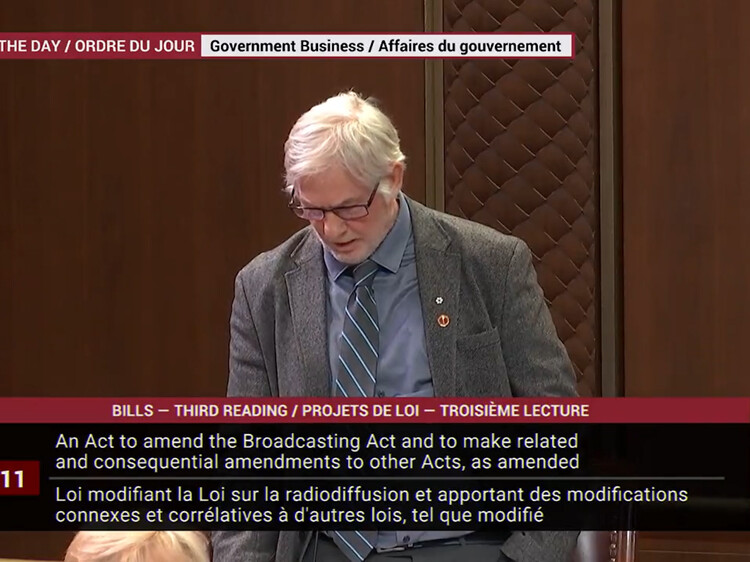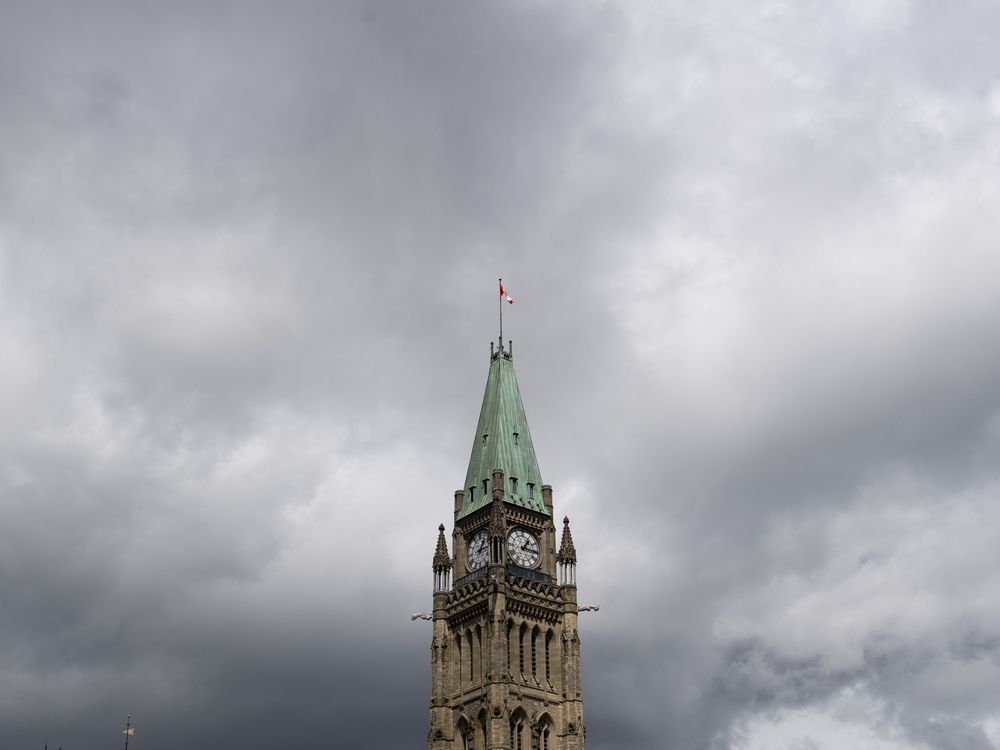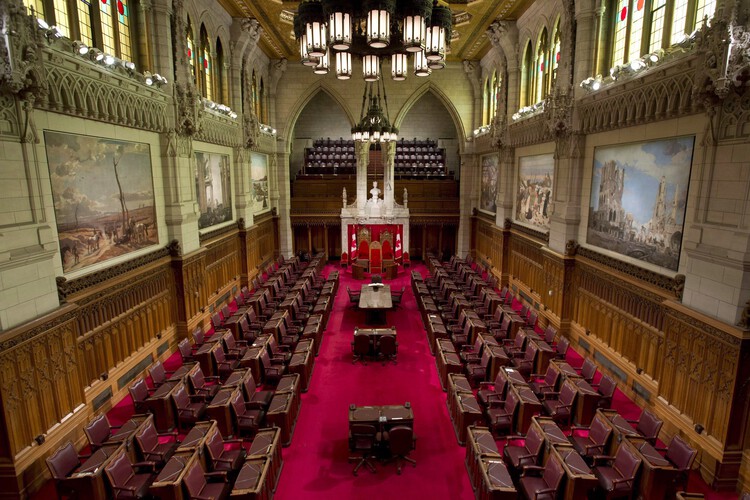Bill’s C-10 & C-11. If we aren’t talking about it already, shouldn’t we be?
- Thread starter Ron in Regina
- Start date
You are using an out of date browser. It may not display this or other websites correctly.
You should upgrade or use an alternative browser.
You should upgrade or use an alternative browser.
It gets better... Run with this buddy. It's full of innuendos.Oh, yeah. "Fag." "Bearing."
Real fuckin' cute.
What are the parts of roller bearings?
Rolling bearings generally consist of two rings, rolling elements, and a cage, and they are classified into radial bearings or thrust bearings depending on the direction of the main load.
You''d have to be pretty illiterate to think it was.You. . . think. . . "fag". . . wasn't. . . political.
Ohh-KAY.
It went from being a small stick to being a term for a cigarette. Why would that be political.
It also went from a stick to being a term for a younger person in school who was a servant to an older school mate in old english schools. And that's where it's use as a pejorative for gay people originated - that guy is like a total fag for Jeremy, he does what he's told if you know what i mean. Pretty soon it was just "that guy's a fag".
Still not political. Just a very natural progression.
But hey - put some more periods between your words, maybe some how it'll make you less wrong
H. L. MenckenThe whole aim of practical politics is to keep the populace alarmed (and hence clamorous to be led to safety) by menacing it with an endless series of hobgoblins, all of them imaginary.
As Parliament inches ever-closer to imposing “Canadian content” strictures over much of the online world, a Liberal-appointed Senator passionately denounced the entire bill as “censorship passing as national inclusion.”
“It is a balkanization of freedom of expression; is so narrow-minded that it defeats the very thing it proposes,” said New Brunswick Senator David Richards in a Tuesday address to the Senate chamber.
Richards was an acclaimed novelist before being appointed to the Senate by Justin Trudeau in 2017. In a speech that alternately compared the bill to Nazi propaganda and Soviet censorship, Richards said the law “will be one of scapegoating all those who do not fit into what our bureaucrats think Canada should be.”

 apple.news
apple.news
The senator’s ire was directed at Bill C-11, which would subject much of the Canadian internet to the same levels of CRTC oversight that are already mandatory for the country’s TV and radio broadcasters.
Most controversially, this would require online streaming platforms such as YouTube or Netflix to meet government-specified quotas on Canadian content.
Currently, most major streaming sites are governed by complex algorithms designed to match users with the content they would find most interesting. But under C-11, the algorithms would need to be tweaked so that any media Ottawa considers “Canadian” would be disproportionately pushed on Canadian viewers while non-Canadian media is buried.
YouTube, for one, has charged that such measures would serve only to put Canadian content in front of “people who don’t like it” – resulting in a wave of negative attention for Canadian videos that would hurt their performance in the rest of the world.
But it’s Ottawa’s Byzantine definition of “Canadian content” that has sparked the most outrage from C-11 opponents. The rest at the above link, & something interesting at the below link.

 apple.news
apple.news
“It is a balkanization of freedom of expression; is so narrow-minded that it defeats the very thing it proposes,” said New Brunswick Senator David Richards in a Tuesday address to the Senate chamber.
Richards was an acclaimed novelist before being appointed to the Senate by Justin Trudeau in 2017. In a speech that alternately compared the bill to Nazi propaganda and Soviet censorship, Richards said the law “will be one of scapegoating all those who do not fit into what our bureaucrats think Canada should be.”
FIRST READING: Liberal-appointed Senator passionately denounces Liberal 'censorship' bill — National Post
An acclaimed novelist, David Richards said plan to impose Canadian content regulations on the internet is 'censorship passing as national inclusion'
The senator’s ire was directed at Bill C-11, which would subject much of the Canadian internet to the same levels of CRTC oversight that are already mandatory for the country’s TV and radio broadcasters.
Most controversially, this would require online streaming platforms such as YouTube or Netflix to meet government-specified quotas on Canadian content.
Currently, most major streaming sites are governed by complex algorithms designed to match users with the content they would find most interesting. But under C-11, the algorithms would need to be tweaked so that any media Ottawa considers “Canadian” would be disproportionately pushed on Canadian viewers while non-Canadian media is buried.
YouTube, for one, has charged that such measures would serve only to put Canadian content in front of “people who don’t like it” – resulting in a wave of negative attention for Canadian videos that would hurt their performance in the rest of the world.
But it’s Ottawa’s Byzantine definition of “Canadian content” that has sparked the most outrage from C-11 opponents. The rest at the above link, & something interesting at the below link.
Margaret Atwood on Bill C-11 and why bureaucrats shouldn’t tell authors what to write — The Globe and Mail
Ms. Atwood says defining what counts as Canadian content could be problematic
The Government wants to control what you watch with Bill C-11
Author of the article:Special to Toronto Sun
Published Mar 09, 2023 • Last updated 1 day ago • 3 minute read
BY RACHEL THOMAS
If you enjoy watching YouTube videos or prefer on-demand streaming services, like Netflix or Disney, over cable or radio, Bill C-11 will have a big impact on you.
Through this piece of legislation, the government is about to give itself the authority to control what you watch. Instead of giving you more of what you want, YouTube will be instructed to give you more of what the government wants you to watch.
The government claims this bill is about “supporting Canadian culture” and “leveling the playing field,” but that’s just not true. Let me explain.
Bill C-11 amends the Broadcasting Act by bringing the internet under its provisions. In the early 20th Century, this Act was put in place to regulate TV and radio to ensure Canada’s two official languages were both given airtime and cultural diversity was upheld. This was necessary because the number of TV and radio stations was limited, and these finite resources needed to be shared.
Unlike these two mediums, the internet is boundless. Anyone who wants to have a presence on the internet can have one. The government doesn’t need to regulate which content should be prioritized and which should be demoted. There’s space for all.
Today, in the Internet Age, when nearly everyone has access to smart devices and streaming services, it’s never been easier for Canadian content creators — from all linguistic and cultural backgrounds –to reach a global audience with the content they wish to showcase. The gatekeepers, such as Bell Media, Rogers, the CBC, or Corus Entertainment, have been removed. The internet is infinite, and the opportunities are endless.
But this is all about to change.
The Liberal Government, under Justin Trudeau, is determined to control what Canadians watch and post online.
THIS BILL HAS MASSIVE CONSEQUENCES
Bill C-11 will censor what you see: This piece of legislation will effectively make the government a content regulator, meaning it will determine what you can see online. This legislation will break your search bar. Instead of directing you to the things you want to view, it will direct you to the things the government wants you to view.
Bill C-11 will censor what you can say: Homegrown talent and creative content here in Canada will no longer succeed based on merit. Content will be subject to a set of criteria that bureaucrats in Ottawa will use to determine its level of “Canadian-ness.” This will favour traditional art forms over new creative content. Cultural minority groups will largely be cut out.
In summary, Bill C-11 will not only hinder consumers’ ability to view and listen to what they want, it will also harm digital-first creators in their ability to succeed and reach global audiences.
Content creators from across Canada, along with consumer groups have been speaking out about the dangers of this bill. Legal experts have called it a grotesque overreach of government.
When speaking about the bill, Margaret Atwood didn’t mince her words when she called it “creeping totalitarianism.”
Bill C-11 is in its final hours of debate, but its not too late to fight back. Help us kill it!
If you’re worried about the government controlling what you watch, take a moment to reach out to the Minister of Heritage, Pablo Rodriguez, and tell him to keep the YOU in YouTube.
It only takes one minute to send a one-line email and it could make a huge difference.
Please email: hon.pablo.rodriguez@pch.gc.ca
Together, let’s #KillBillC11!
— Rachael Thomas is the MP for Lethbridge, in Alberta, and the shadow minister for Canadian Heritage

 torontosun.com
torontosun.com
Author of the article:Special to Toronto Sun
Published Mar 09, 2023 • Last updated 1 day ago • 3 minute read
BY RACHEL THOMAS
If you enjoy watching YouTube videos or prefer on-demand streaming services, like Netflix or Disney, over cable or radio, Bill C-11 will have a big impact on you.
Through this piece of legislation, the government is about to give itself the authority to control what you watch. Instead of giving you more of what you want, YouTube will be instructed to give you more of what the government wants you to watch.
The government claims this bill is about “supporting Canadian culture” and “leveling the playing field,” but that’s just not true. Let me explain.
Bill C-11 amends the Broadcasting Act by bringing the internet under its provisions. In the early 20th Century, this Act was put in place to regulate TV and radio to ensure Canada’s two official languages were both given airtime and cultural diversity was upheld. This was necessary because the number of TV and radio stations was limited, and these finite resources needed to be shared.
Unlike these two mediums, the internet is boundless. Anyone who wants to have a presence on the internet can have one. The government doesn’t need to regulate which content should be prioritized and which should be demoted. There’s space for all.
Today, in the Internet Age, when nearly everyone has access to smart devices and streaming services, it’s never been easier for Canadian content creators — from all linguistic and cultural backgrounds –to reach a global audience with the content they wish to showcase. The gatekeepers, such as Bell Media, Rogers, the CBC, or Corus Entertainment, have been removed. The internet is infinite, and the opportunities are endless.
But this is all about to change.
The Liberal Government, under Justin Trudeau, is determined to control what Canadians watch and post online.
THIS BILL HAS MASSIVE CONSEQUENCES
Bill C-11 will censor what you see: This piece of legislation will effectively make the government a content regulator, meaning it will determine what you can see online. This legislation will break your search bar. Instead of directing you to the things you want to view, it will direct you to the things the government wants you to view.
Bill C-11 will censor what you can say: Homegrown talent and creative content here in Canada will no longer succeed based on merit. Content will be subject to a set of criteria that bureaucrats in Ottawa will use to determine its level of “Canadian-ness.” This will favour traditional art forms over new creative content. Cultural minority groups will largely be cut out.
In summary, Bill C-11 will not only hinder consumers’ ability to view and listen to what they want, it will also harm digital-first creators in their ability to succeed and reach global audiences.
Content creators from across Canada, along with consumer groups have been speaking out about the dangers of this bill. Legal experts have called it a grotesque overreach of government.
When speaking about the bill, Margaret Atwood didn’t mince her words when she called it “creeping totalitarianism.”
Bill C-11 is in its final hours of debate, but its not too late to fight back. Help us kill it!
If you’re worried about the government controlling what you watch, take a moment to reach out to the Minister of Heritage, Pablo Rodriguez, and tell him to keep the YOU in YouTube.
It only takes one minute to send a one-line email and it could make a huge difference.
Please email: hon.pablo.rodriguez@pch.gc.ca
Together, let’s #KillBillC11!
— Rachael Thomas is the MP for Lethbridge, in Alberta, and the shadow minister for Canadian Heritage

THOMAS: The Government wants to control what you watch with Bill C-11
If you enjoy watching YouTube videos or prefer on-demand streaming services over cable or radio, Bill C-11 will have a big impact on you.
Well, nobody watches CBC anymore. The liberals have to find a new way to force Toronto ideas on the hinterland. Good thing we can now get satellite internet.
The danger of the Trudeau government giving itself more power to regulate content on social media — see Bill C-11 where politicians and bureaucrats will decide what they think you want to watch — was driven home this week by its ham-fisted attempt to remove a column by Sun Media’s Lorne Gunter from Twitter and Facebook.
It came from a communications bureaucrat — governments are crawling with them today — about a Sept. 26, 2021 column based on a confidential government document Gunter had obtained, outlining plans to massively expand the reasons refugee applicants could be admitted to Canada.
The document was authentic and clearly a matter of public interest, given the Trudeau government’s publicly stated intention to significantly increase immigration and refugee levels.
In response, the bureaucrat wrote to Twitter and Facebook the day after the column appeared, asking them to “remove/unpublish” a “post linking to an article on the Toronto Sun website containing serious errors of fact, risking undermining public confidence in the independence of the (immigration and refugee) board as well as the integrity of the refugee determination system.”
Nothing in Gunter’s column, headlined “Liberals to make immigration to Canada much easier,” threatened anyone or violated our laws against hate speech.
Even if it was inaccurate — it wasn’t — the government had no business asking Twitter and Facebook to remove it. Neither of them did, nor did the Sun.
Unsurprisingly, the Trudeau government has a lot of would-be censors working for it.

 apple.news
As reported by The Canadian Press, in response to a written question from Conservative MP Dean Allison, the government said it attempted to censor content on social media 214 times between January 2020 and February 2023 over such things as its interpretation of “offensive language.”
apple.news
As reported by The Canadian Press, in response to a written question from Conservative MP Dean Allison, the government said it attempted to censor content on social media 214 times between January 2020 and February 2023 over such things as its interpretation of “offensive language.”
As University of Ottawa professor Michael Geist, Canada research chair in internet and e-commerce law, noted on his website: “It is difficult to separate the government’s willingness to censor social media posts with its broader internet regulation agenda” including C-11, which is about to become law.
Peter Menzies, former vice-chair of the CRTC, has warned C-11 will “open the door to state-controlled media” and when “internet regulation falls into political hands, Canadians will regret it for the rest of their lives.”
It came from a communications bureaucrat — governments are crawling with them today — about a Sept. 26, 2021 column based on a confidential government document Gunter had obtained, outlining plans to massively expand the reasons refugee applicants could be admitted to Canada.
The document was authentic and clearly a matter of public interest, given the Trudeau government’s publicly stated intention to significantly increase immigration and refugee levels.
In response, the bureaucrat wrote to Twitter and Facebook the day after the column appeared, asking them to “remove/unpublish” a “post linking to an article on the Toronto Sun website containing serious errors of fact, risking undermining public confidence in the independence of the (immigration and refugee) board as well as the integrity of the refugee determination system.”
Nothing in Gunter’s column, headlined “Liberals to make immigration to Canada much easier,” threatened anyone or violated our laws against hate speech.
Even if it was inaccurate — it wasn’t — the government had no business asking Twitter and Facebook to remove it. Neither of them did, nor did the Sun.
Unsurprisingly, the Trudeau government has a lot of would-be censors working for it.
EDITORIAL: The feds aren't just coming for the Sun — Toronto Sun
The danger of the Trudeau government giving itself more power to regulate content on social media — see Bill C-11 where politicians and bureaucrats will decide what they think you want to watch — was driven home this week by its ham-fisted attempt to remove a column by Sun Media’s Lorne Gunter...
As University of Ottawa professor Michael Geist, Canada research chair in internet and e-commerce law, noted on his website: “It is difficult to separate the government’s willingness to censor social media posts with its broader internet regulation agenda” including C-11, which is about to become law.
Peter Menzies, former vice-chair of the CRTC, has warned C-11 will “open the door to state-controlled media” and when “internet regulation falls into political hands, Canadians will regret it for the rest of their lives.”
I've been reporting his videos to YouTube as misinformation which in reality really are misinformation.
Liberals' controversial online streaming bill back before Senate
Author of the article:Canadian Press
Canadian Press
Mickey Djuric
Published Apr 18, 2023 • Last updated 10 hours ago • 3 minute read
The Liberal government's controversial online streaming bill is back before the Senate today, where it will need a final vote before it official becomes law, crushing the hopes of content-creators who fought against it.
The Liberal government's controversial online streaming bill is back before the Senate today, where it will need a final vote before it official becomes law, crushing the hopes of content-creators who fought against it.
OTTAWA — The Liberal government’s controversial online-streaming bill was back in the upper chamber on Tuesday, with one senator who had earlier opposed it saying she expected it to pass.
After more than a year of debate and revisions, Alberta Sen. Paula Simons said she would really like to see Bill C-11 “done and dusted” this week, and not because she wants to ram it through.
“For all the cynicism about the Senate, I think the Senate showed its merits with this bill,” Simons said in a recent interview. “And I think we did a really good job of debating and discussing it.”
Last month, the House of Commons adopted most of the Senate’s amendments, which included measures to highlight the promotion of Indigenous languages and Black content creators and a change that sought to “reaffirm” the independence and freedom of expression of creators.
Senators also tweaked the bill to ensure that funds collected from tech giants would go toward promoting diversity, equity and inclusion.
If passed, Bill C-11 would update broadcasting rules to include online streaming and require tech giants such as YouTube, Netflix and Spotify to make Canadian content available to users in Canada — or face steep penalties.
It was subject to especially lengthy debate in the Senate and has sparked criticism from special-interest groups and content creators who feared the bill would cause the government to over-regulate the internet.
“All the debate about this bill has been completely polluted and very well-organized by bot campaigns,” said Simons, adding that she still gets hundreds of emails weekly from automated campaigns that spread false information about the bill.
“People are being sold that this is a censorship bill, or that it’s like 1984. It’s like Stalin. It’s like Hitler. It’s like the Chinese government. It’s all silly,” she said.
“There were significant flaws in this bill, and we’ve made them better.”
The Liberal bill is supported by the NDP and Bloc Quebecois, but the Conservatives have called it a “censorship” bill, with Conservative Leader Pierre Poilievre even holding up George Orwell’s “1984” science-fiction novel about Big Brother in the House while discussing the bill.
Simons, who said she sought to quiet the firestorm of disinformation surrounding the bill, had endorsed an amendment that would have added further protections for individuals who post content online, from comedy acts to instructional videos.
She said she wanted Canadians to actually talk about what’s in the bill, as opposed to giving in to “fear-mongering.”
Ultimately, the House of Commons rejected the amendment, which was also endorsed by YouTube, because MPs felt it would create a loophole for tech giants to avoid contributing to Canadian content.
While the bill isn’t something she agrees with, Simons said she will support its passage.
“At the end of the day, the government ran on this bill. It was part of their election platform,” Simons said — the Liberals had promised similar legislation during their previous minority-government mandate.
“I think there’s also an understanding that there are limits to how much the Senate can push back if this is a hill to die on, or if this is profound public-policy disagreement. And the government at the end of the day has to be responsible for its choices.”
When the bill is passed, a policy directive will be issued to the Canadian Radio-television and Telecommunications Commission, which will be tasked with enforcing the bill’s provisions.
The CRTC is also required to consult with the public, and its reports must be made public, thanks to another Senate amendment that was accepted by the House.

 torontosun.com
torontosun.com
Author of the article:Canadian Press
Canadian Press
Mickey Djuric
Published Apr 18, 2023 • Last updated 10 hours ago • 3 minute read
The Liberal government's controversial online streaming bill is back before the Senate today, where it will need a final vote before it official becomes law, crushing the hopes of content-creators who fought against it.
The Liberal government's controversial online streaming bill is back before the Senate today, where it will need a final vote before it official becomes law, crushing the hopes of content-creators who fought against it.
OTTAWA — The Liberal government’s controversial online-streaming bill was back in the upper chamber on Tuesday, with one senator who had earlier opposed it saying she expected it to pass.
After more than a year of debate and revisions, Alberta Sen. Paula Simons said she would really like to see Bill C-11 “done and dusted” this week, and not because she wants to ram it through.
“For all the cynicism about the Senate, I think the Senate showed its merits with this bill,” Simons said in a recent interview. “And I think we did a really good job of debating and discussing it.”
Last month, the House of Commons adopted most of the Senate’s amendments, which included measures to highlight the promotion of Indigenous languages and Black content creators and a change that sought to “reaffirm” the independence and freedom of expression of creators.
Senators also tweaked the bill to ensure that funds collected from tech giants would go toward promoting diversity, equity and inclusion.
If passed, Bill C-11 would update broadcasting rules to include online streaming and require tech giants such as YouTube, Netflix and Spotify to make Canadian content available to users in Canada — or face steep penalties.
It was subject to especially lengthy debate in the Senate and has sparked criticism from special-interest groups and content creators who feared the bill would cause the government to over-regulate the internet.
“All the debate about this bill has been completely polluted and very well-organized by bot campaigns,” said Simons, adding that she still gets hundreds of emails weekly from automated campaigns that spread false information about the bill.
“People are being sold that this is a censorship bill, or that it’s like 1984. It’s like Stalin. It’s like Hitler. It’s like the Chinese government. It’s all silly,” she said.
“There were significant flaws in this bill, and we’ve made them better.”
The Liberal bill is supported by the NDP and Bloc Quebecois, but the Conservatives have called it a “censorship” bill, with Conservative Leader Pierre Poilievre even holding up George Orwell’s “1984” science-fiction novel about Big Brother in the House while discussing the bill.
Simons, who said she sought to quiet the firestorm of disinformation surrounding the bill, had endorsed an amendment that would have added further protections for individuals who post content online, from comedy acts to instructional videos.
She said she wanted Canadians to actually talk about what’s in the bill, as opposed to giving in to “fear-mongering.”
Ultimately, the House of Commons rejected the amendment, which was also endorsed by YouTube, because MPs felt it would create a loophole for tech giants to avoid contributing to Canadian content.
While the bill isn’t something she agrees with, Simons said she will support its passage.
“At the end of the day, the government ran on this bill. It was part of their election platform,” Simons said — the Liberals had promised similar legislation during their previous minority-government mandate.
“I think there’s also an understanding that there are limits to how much the Senate can push back if this is a hill to die on, or if this is profound public-policy disagreement. And the government at the end of the day has to be responsible for its choices.”
When the bill is passed, a policy directive will be issued to the Canadian Radio-television and Telecommunications Commission, which will be tasked with enforcing the bill’s provisions.
The CRTC is also required to consult with the public, and its reports must be made public, thanks to another Senate amendment that was accepted by the House.

Liberals' controversial online streaming bill back before Senate
The Liberal government's controversial online-streaming bill is back in the upper chamber, where senator who opposed it expects it to pass.
I don't understand. If one doesn't "support" a Bill, why vote for it? Politicians are driving me crazy with their stupidity, that's for sure! We're electing cowards who refuse to stand up for what is right. It's incredible!!
sounds like she just wants the effin thing to go away. if it's not passed then it will come back to perpetually annoy them, and well, we can't have that now can we?I don't understand. If one doesn't "support" a Bill, why vote for it? Politicians are driving me crazy with their stupidity, that's for sure! We're electing cowards who refuse to stand up for what is right. It's incredible!!
The federal government has moved to curtail debate in the Senate on the online-streaming bill – in its final hurdle before becoming law – with a motion to halt parliamentary discussion next week.
Senator Marc Gold, the government’s representative in the Red Chamber, signalled on Thursday night that he would try to curb debate to six hours next week, speeding its passage into law.
Marc Gold, the Government Leader in the Senate, tabled a “notice of motion” to curb further debate next week because he said Conservative senators have been trying to delay Bill C-11 from becoming law.
The bill is in its final stage in the parliamentary process before it becomes law.
This week, senators were debating Heritage Minister Pablo Rodriguez’s decision to both accept and reject particular Senate amendments to the bill.
The Conservative Leader in the Senate, Don Plett, urged senators to dig their heals in and stand by Senate amendments that the minister rejected. But other senators have expressed reluctance to pick a last-ditch fight with the elected House of Commons after making their views on the bill known in previous stages of its passage through Parliament.
Mr. Rodriguez accepted a number of amendments passed by the Senate. He rejected others, including a key amendment clarifying the wording of the bill to make clear that it would not cover user-generated videos posted on YouTube.

 apple.news
apple.news
Senator Marc Gold, the government’s representative in the Red Chamber, signalled on Thursday night that he would try to curb debate to six hours next week, speeding its passage into law.
Marc Gold, the Government Leader in the Senate, tabled a “notice of motion” to curb further debate next week because he said Conservative senators have been trying to delay Bill C-11 from becoming law.
The bill is in its final stage in the parliamentary process before it becomes law.
This week, senators were debating Heritage Minister Pablo Rodriguez’s decision to both accept and reject particular Senate amendments to the bill.
The Conservative Leader in the Senate, Don Plett, urged senators to dig their heals in and stand by Senate amendments that the minister rejected. But other senators have expressed reluctance to pick a last-ditch fight with the elected House of Commons after making their views on the bill known in previous stages of its passage through Parliament.
Mr. Rodriguez accepted a number of amendments passed by the Senate. He rejected others, including a key amendment clarifying the wording of the bill to make clear that it would not cover user-generated videos posted on YouTube.
Government to curb final Senate debate on C-11 to speed its passage into law — The Globe and Mail
C-11 will make online-streaming services such as Netflix and Spotify promote and financially support Canadian music, film and TV, alongside traditional broadcasters
The fact that the liberals are so desperate to pass this flawed legislation is not only offensive, but disturbing. There is obviously something they desperately want to do or hide that requires this legislation to protect their sorry asses.
shut up and get in line . The train is waiting .The fact that the liberals are so desperate to pass this flawed legislation is not only offensive, but disturbing. There is obviously something they desperately want to do or hide that requires this legislation to protect their sorry asses.
I live on the Island. We haven't had train service for about 10 years.shut up and get in line . The train is waiting .
The people who hate the truth believe the truth is hateful.
That would explain why the liberals want to control the internet. To keep the truth about their actions from becoming public.The people who hate the truth believe the truth is hateful.
The tracks and right of ways are still there .I live on the Island. We haven't had train service for about 10 years.